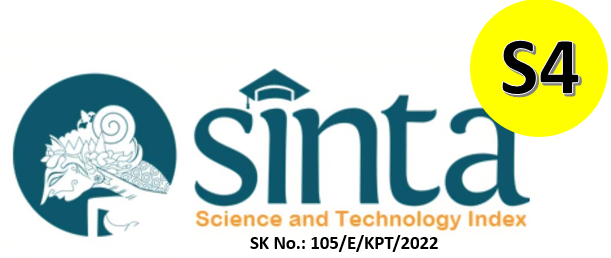Evaluasi Pengelolaan Sampah di Perusahaan Air Minum Dalam Kemasan
DOI:
https://doi.org/10.29080/alard.v9i1.1937Keywords:
Air Minum Dalam Kemasan, Pengelolaan Sampah, Observasi Lapangan, EvaluasiAbstract
Currently, bottled drinking water (AMDK) companies in Indonesia are growing rapidly due to the need for water that is ready for consumption by the community. This research aims to identify sources of waste and evaluate Solid Waste Management (SWM) system in a selected bottled water company. The research adopted descriptive analysis methods through field observations and compared existing SWM with best practices and available standards. In its production line, the selected AMDK company produces non-hazardous solid wastes from production and domestic activities. Non-hazarodus waste from production activity generated from rejected products in the bottled water production process, testing the quality of the bottled drinking water produced, product packaging, until product transportation for the distribution. Non-hazarodus waste from domestic activity/municipal solid waste (MSW) generated from employees and it contributed around 33.7% of the total non-hazardous waste generation. From the observation, the company have implemented MSW management by prioritizing the waste reduction and segregation at the source and at waste temporary storage (TPS), and waste processing such as composting and eco-brick innovations. Better campaign of waste segregation and sustainability of waste processing are some of recommendation resulted from the research to reduce as much as possible the amount of waste to be transported to the Final Processing Site (TPA).
Downloads
References
Abdissa, G., Ayalew, A., Dunay, A. and Illés, C.B. (2022). Role of Reverse Logistics Activities in the Recycling of Used Plastic Bottled Water Waste Management. Sustainability, 14(1): 7650. doi: 10.3390/su14137650
Aslani, H., Pashmtab, P., Shaghaghi, A., Mohammadpoorasl, A., Taghipour, H., and Zarei, M. (2021). Tendencies towards bottled drinking water consumption: Challenges ahead of polyethylene terephthalate (PET) waste management. Health Promotion Perspectives, 11(1): 60-68. Doi: 10.34172/hpp.2021.09
Badan Standarisasi Nasional. (1995). Spesifikasi Timbulan Sampah Kota Sedang dan Kota Kecil. Jakarta: Badan Standarisasi Nasional.
Badan Standarisasi Nasional. (2002). Tata Cara Teknik Operasional Pengelolaan Sampah Perkotaan. Jakarta: Badan Standarisasi Nasional.
Badan Standarisasi Nasional. (2004). Spesifikasi Kompos dari Sampah Organik Domestik. Jakarta: Badan Standarisasi Nasional.
Cahayani, I., Fachurreza, A.M., dan Puspita, A.N. (2023). Danone-Aqua Circular Economy Performance in Maximizing Waste Plastic Value. Jurnal of Economics and Policy (JEJAK), 16(1): 92-103. doi: 10.15294/jejak.v16i1.43476
Damanhuri, E dan Padmi, T. (2004). Diktat Kuliah Pengelolaan Sampah. Bandung: Penerbit ITB.
Fathiras, Nasya. (2011). Analisis Pengelolaan Sampah di Tempat Pembuangan Akhir Pasir Sembung Kabupaten Cianjur (Aplikasi Model IPAT). Bogor: IPB.
Hidayat, Y.A., Kiranamahsa, S., and Zamal, M.A. (2019). A study of plastic waste management effectiveness in Indonesia industries. AIMS Energy, 7(3): 350–370.doi: 10.3934/energy.2019.3.350
Pramiati, S.K., Soesilo, T.E.B., and Agustina, H. (2021). Post-Consumer plastic packaging waste management in Indonesia: A producer responsibility approach. E3S Web of Conferences 325, 03005.
Sugiyono. (2014). Metode Penelitian Kuantitatif, Kualitatif, dan R&D. Bandung: Alfabeta.
Rachman, I., Soesanto, Q.M.B., Khair, H., dan Matsumoto, T. (2020). Participation of leaders and community in solid waste management in Indonesia to reduce landfill waste load. Journal of Community Based Environmental Engineering and Management, 4(2): 75-84. doi: 10.23969/jcbeem.v4i2.3348
Tchobanoglous, G. and Kreith, F. (2002) Handbook of Solid Waste Management. 2nd Edition. New York: McGraw Hill Handbooks.
Ulfah, M. dan Kulsum. (2022). Waste Minimisation on production processes of botled drinking water using green lean six sigma approach. Jurnal Teknologi Industri Pertanian, 32(1): 40-49. doi: 10.24961/j.tek.ind.pert.2022.32.1.40
Wang, T., Kim, J., and Whelton, A.J. (2019). Management of plastic bottle and filter waste during the large-scale Flint Michigan lead contaminated drinking water incident. Resources, Conservation and Recycling, 140, pp. 115-124. doi: 10.1016/j.resconrec.2018.08.021
Wardrop, N.A., Dzodzomenyo, M., Aryeetey, G., Hill, A.G., Bain, R.E.S., and Wright, J. (2017). Estimation of packaged water consumption and associated plastic waste production from household budget surveys. Environmental Research Letters, 12(7). doi: 10.1088/1748-9326/aa751f/
Downloads
Published
How to Cite
Issue
Section
License
Copyright (c) 2023 This is an Open Access article distributed under the terms of the Creative Commons Attribution 4.0 International License, which permits unrestricted use, distribution, adaptation, and reproduction in any medium, provided that the original work is properly cited.

This work is licensed under a Creative Commons Attribution-ShareAlike 4.0 International License.
Authors who publish with this journal agree to the following terms:
- Authors retain copyright and grant the journal right of first publication with the work simultaneously licensed under a Creative Commons Attribution License that allows others to share the work with an acknowledgement of the work's authorship and initial publication in this journal.
- Authors are able to enter into separate, additional contractual arrangements for the non-exclusive distribution of the journal's published version of the work (e.g., post it to an institutional repository or publish it in a book), with an acknowledgement of its initial publication in this journal.
- Authors are permitted and encouraged to post their work online (e.g., in institutional repositories or on their website) prior to and during the submission process, as it can lead to productive exchanges, as well as earlier and greater citation of published work.



